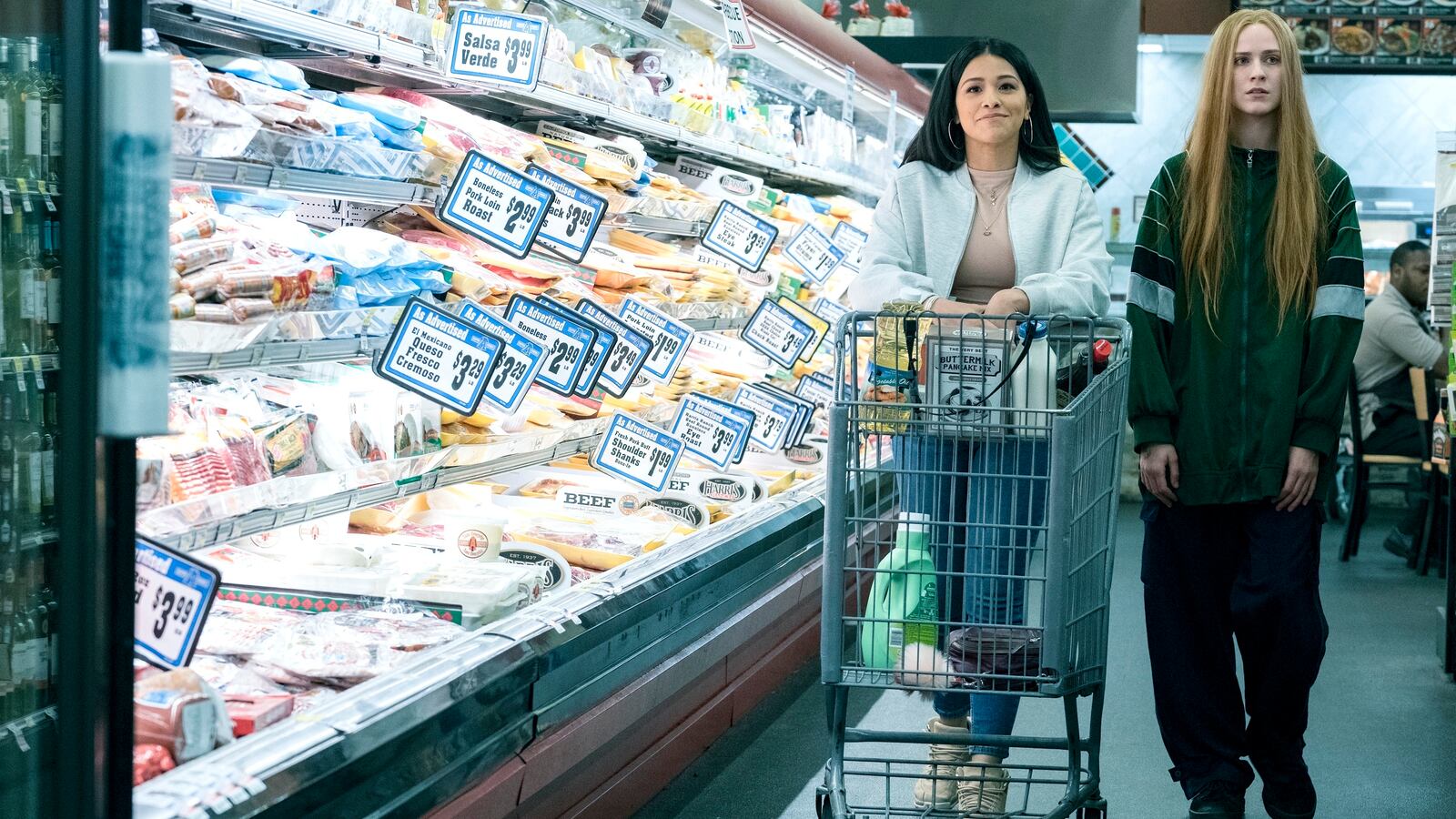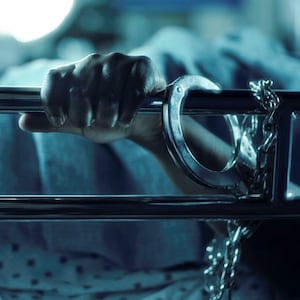In Miranda July’s, Kajillionaire, her first film in nine years, the masses embody an ethic of tenderness.
The film’s protagonist, Old Dolio Dyne, played with both care and spontaneity by Evan Rachel Wood—a strange, antisocial, and emotionally-neglected only child in a family of very broke petty scammers—has a hard time accepting even basic touch, but is offered affection and understanding, by strangers. “Old Dolio is an ode to a kind of deeply-butch woman that I have loved and been in love with,” July told me by phone. “I wanted her to be treated kindly; I wanted women to reach out and try to comfort her. And I knew just how she would react. I knew that she would not be able to take it. Even if she wanted it—it would be too painful.”

Director Miranda July on the set of Kajillionaire
Matt Kennedy/Focus FeaturesAt one point, Old Dolio makes some cash filling in for a young pregnant woman who is hoping to skip her state-mandated child-rearing workshop to go on a date. At the workshop, Old Dolio is stunned by what she sees and hears—skin-to-skin contact between mother and newborn has a crucial impact on child development. Old Dolio asks her mother, Theresa (a hardened yet almost soulful Debra Winger), if she did skin-to-skin or if she was placed right in a cot. The content of the exchange won’t surprise you, but its ability to resonate with perhaps any experience of abandonment or sense of generational trauma—while somehow being funny—might. The thrust of the film doesn’t come from an idea of immediate familial redemption, but a more expanded sphere of communion. Kajillionaire is a painful, hopeful, and mischievous exploration of what queerness, in its many meanings and interpretations, can win you and lose you.
During a baggage insurance fraud scam Old Dolio dreams up, her parents, including her father Robert (the always funny-sad Richard Jenkins), take an interest in a vibrant young woman on the plane who’s Old Dolio’s age as well as her total opposite. From there, the Dynes—desperate to make rent for their absurdly not-to-code apartment (of sorts) that bleeds pink foam at least once a day—enmesh themselves in an elaborate yet amateur heist dreamed up by their new partner in crime, and about which Old Dolio is understandably resentful.
Melanie, played by an electrifying Gina Rodriguez, has a very attached mother who calls her frequently on FaceTime and buys two of everything so she can send along the second to her daughter. The young woman, who holds a day job in sales at a glasses shop, seems appreciative of her mother, but also a bit smothered, annoyed. “I have a good friend whose mom is like that, who had a lot of expensive bath products and stuff like that, that I always really envied,” July divulged. “And that her mom would send them to her just seemed like the height of luxury to me. But also this friend was always dating a drug addict, just could not resist the pull of a total car crash, and was always wanting to save someone, too. And with that, I was like, I know that girl, and she would totally get pulled in.”
Kajillionaire, out Sept. 25, quickly becomes a story not so much about Old Dolio’s troubled parents—who are largely unable to show genuine affection to their struggling daughter or to recognize Melanie’s underlying vulnerabilities—but about both the comedy and erotics of what it means for two disconnected women in their twenties to be reborn through each other and stumble out into downtown Los Angeles in all their closely-held knowledge, startling naivete, and economic precarity. And this process of rebirth, a string of big and small adventures between Melanie and Old Dolio, is full of genuine inspiration that comes both from the performances and from the film’s imaginative environment. “So often, it’s an idea that makes me curious or is funny to me,” July explained. “It doesn’t necessarily seem like it’s holding meaning—and that’s actually crucial. It has to be alive in this way.
“And then, I kind of trust it, like, I know it’s gold, if it has that aliveness. With a lot of the dialogue on the airplane, I’m sort of quietly performing, and as I’m doing it, it’s making me laugh. Or imagining Evan doing the breast crawl—that’s just the first time I’ve thought of it. I fell down to the floor and started doing it across my studio. I’m like, Oh, this one looks great. You know? And then my job later [is to be] a detective, to figure out, What do these things mean? I just trust that they have this meaning, like dirt in their roots or something. And I have to kind of delicately preserve that as I weave it into the story.”


